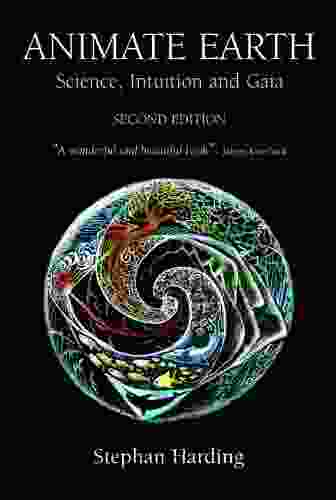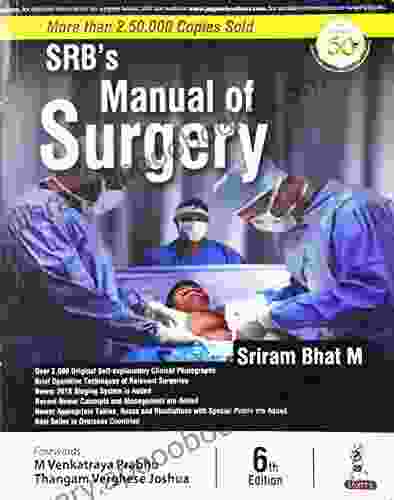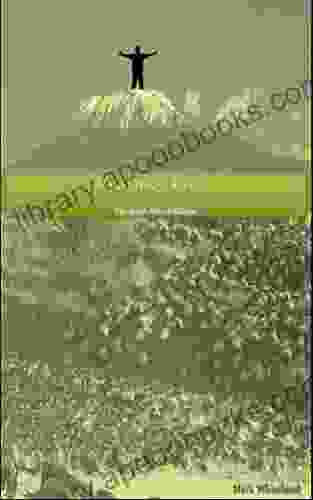Science, Intuition, and Gaia: A New Scientific Story

Science and intuition have long been seen as opposing forces, with science representing the rational and logical approach to understanding the world, and intuition representing the more subjective and emotional side of human experience. However, in recent years, there has been a growing convergence between these two ways of knowing, as scientists begin to explore the role of intuition in scientific discovery and the potential for a more holistic and interconnected understanding of the universe.
4.5 out of 5
| Language | : | English |
| File size | : | 2318 KB |
| Text-to-Speech | : | Enabled |
| Screen Reader | : | Supported |
| Enhanced typesetting | : | Enabled |
| Word Wise | : | Enabled |
| Print length | : | 258 pages |
One of the most important developments in this convergence is the Gaia hypothesis, which proposes that the Earth is a self-regulating system that maintains the conditions necessary for life. The Gaia hypothesis challenges the traditional view of the Earth as a passive and inert object, and instead suggests that it is a complex and dynamic system that is capable of responding to and adapting to changes in its environment.
The Gaia hypothesis has been controversial since it was first proposed in the 1970s, but it has gained increasing support in recent years as scientists have gathered more evidence to support its claims. For example, scientists have found that the Earth's atmosphere, oceans, and climate are all regulated by a complex system of feedback loops that help to maintain the conditions necessary for life. They have also found that the Earth's biosphere is capable of responding to and adapting to changes in its environment, such as changes in temperature, sea level, and atmospheric composition.
The Gaia hypothesis has implications for our understanding of the universe and our place within it. If the Earth is a self-regulating system, then it suggests that the universe is not a random and chaotic place, but rather a place that is Free Downloaded and purposeful. It also suggests that we, as humans, are not separate from the natural world, but rather are part of a larger and interconnected web of life.
Science and Intuition
The convergence of science and intuition is a relatively new development, but it has the potential to revolutionize our understanding of the world. Science provides us with a rational and logical framework for understanding the world, while intuition provides us with a more subjective and emotional understanding. By combining these two ways of knowing, we can gain a more holistic and interconnected understanding of the universe.
There is growing evidence to suggest that intuition plays an important role in scientific discovery. Many scientists have reported having sudden insights or "aha!" moments that led to breakthroughs in their research. These insights often come from the subconscious mind, and they can be difficult to explain rationally. However, they can be very valuable in helping scientists to make new discoveries.
Intuition is also important for making sense of the world around us. We use our intuition to make decisions, to solve problems, and to understand the motivations of others. It is a powerful tool that can help us to navigate the complexities of life.
The Gaia Hypothesis
The Gaia hypothesis is a scientific theory that proposes that the Earth is a self-regulating system that maintains the conditions necessary for life. The hypothesis was first proposed by James Lovelock and Lynn Margulis in the 1970s, and it has since gained increasing support from scientists around the world.
The Gaia hypothesis is based on the observation that the Earth's atmosphere, oceans, and climate are all regulated by a complex system of feedback loops that help to maintain the conditions necessary for life. For example, the Earth's atmosphere is regulated by a feedback loop that involves the carbon cycle. When the carbon dioxide levels in the atmosphere increase, the oceans absorb more carbon dioxide, which helps to lower the levels in the atmosphere. This feedback loop helps to keep the Earth's atmosphere at a level that is conducive to life.
The Gaia hypothesis also proposes that the Earth's biosphere is capable of responding to and adapting to changes in its environment. For example, when the Earth's temperature increases, the biosphere responds by releasing more carbon dioxide into the atmosphere, which helps to cool the planet. This feedback loop helps to keep the Earth's temperature within a range that is conducive to life.
The Gaia hypothesis has implications for our understanding of the universe and our place within it. If the Earth is a self-regulating system, then it suggests that the universe is not a random and chaotic place, but rather a place that is Free Downloaded and purposeful. It also suggests that we, as humans, are not separate from the natural world, but rather are part of a larger and interconnected web of life.
A New Scientific Story
The convergence of science, intuition, and the Gaia hypothesis is giving rise to a new scientific story, one that is more holistic and interconnected than the traditional scientific story. This new story is based on the idea that the universe is a living and conscious system, and that we, as humans, are part of this system. It is a story that is still being written, but it has the potential to change our understanding of the world in profound ways.
The new scientific story has implications for our lives. It suggests that we need to live in harmony with the natural world, and that we need to find ways to reduce our impact on the environment. It also suggests that we need to develop our intuition and our capacity for compassion and understanding. By ng so, we can help to create a more sustainable and peaceful world.
The convergence of science, intuition, and the Gaia hypothesis is a significant development that has the potential to revolutionize our understanding of the world. This new understanding is based on the idea that the universe is a living and conscious system, and that we, as humans, are part of this system. It is a story that is still being written, but it has the potential to change our understanding of the world in profound ways.
4.5 out of 5
| Language | : | English |
| File size | : | 2318 KB |
| Text-to-Speech | : | Enabled |
| Screen Reader | : | Supported |
| Enhanced typesetting | : | Enabled |
| Word Wise | : | Enabled |
| Print length | : | 258 pages |
Do you want to contribute by writing guest posts on this blog?
Please contact us and send us a resume of previous articles that you have written.
 Book
Book Novel
Novel Page
Page Chapter
Chapter Text
Text Story
Story Genre
Genre Reader
Reader Library
Library Paperback
Paperback E-book
E-book Magazine
Magazine Newspaper
Newspaper Paragraph
Paragraph Sentence
Sentence Bookmark
Bookmark Shelf
Shelf Glossary
Glossary Bibliography
Bibliography Foreword
Foreword Preface
Preface Synopsis
Synopsis Annotation
Annotation Footnote
Footnote Manuscript
Manuscript Scroll
Scroll Codex
Codex Tome
Tome Bestseller
Bestseller Classics
Classics Library card
Library card Narrative
Narrative Biography
Biography Autobiography
Autobiography Memoir
Memoir Reference
Reference Encyclopedia
Encyclopedia Juan P Carmona
Juan P Carmona Joy Kirr
Joy Kirr John E Freund
John E Freund Jonathan J Dutton
Jonathan J Dutton Steven Md Knives
Steven Md Knives K E O Connor
K E O Connor John L Dornhoffer
John L Dornhoffer Jules Fox
Jules Fox Jorge De Montemayor
Jorge De Montemayor Joss Wood
Joss Wood Paul Mcgeough
Paul Mcgeough John Van Rys
John Van Rys John Ridley
John Ridley Katie Anderson
Katie Anderson John Trenchard
John Trenchard Julia Brannen
Julia Brannen Page Zaplendam
Page Zaplendam Scott W Michael
Scott W Michael John Beath
John Beath Listastik
Listastik
Light bulbAdvertise smarter! Our strategic ad space ensures maximum exposure. Reserve your spot today!
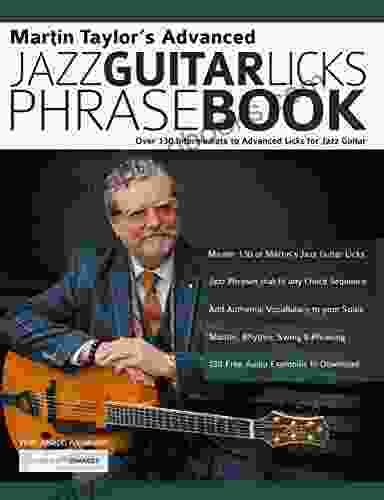
 Jarrett BlairMaster Jazz Guitar with Martin Taylor's Advanced Jazz Guitar Licks Phrase...
Jarrett BlairMaster Jazz Guitar with Martin Taylor's Advanced Jazz Guitar Licks Phrase...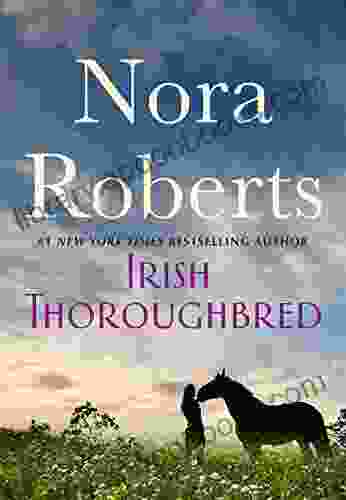
 Frank MitchellImmerse Yourself in the Enduring Legacy of Irish Thoroughbreds in "Irish...
Frank MitchellImmerse Yourself in the Enduring Legacy of Irish Thoroughbreds in "Irish... Wayne CarterFollow ·15.8k
Wayne CarterFollow ·15.8k Gregory WoodsFollow ·12.5k
Gregory WoodsFollow ·12.5k Alfred RossFollow ·3k
Alfred RossFollow ·3k Edgar HayesFollow ·10.1k
Edgar HayesFollow ·10.1k Carson BlairFollow ·4.8k
Carson BlairFollow ·4.8k Jared NelsonFollow ·8.9k
Jared NelsonFollow ·8.9k Deacon BellFollow ·17.5k
Deacon BellFollow ·17.5k Justin BellFollow ·6.8k
Justin BellFollow ·6.8k

 Tyler Nelson
Tyler NelsonHer Dragon to Slay: Embark on an Epic Journey of...
In a realm where shadows dance and legends...
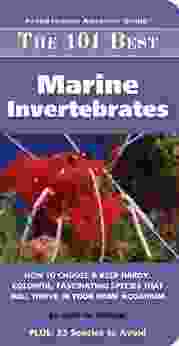
 Zachary Cox
Zachary Cox101 Best Marine Invertebrates: The Adventurous Aquarist's...
Unveiling the Enchanting Realm...
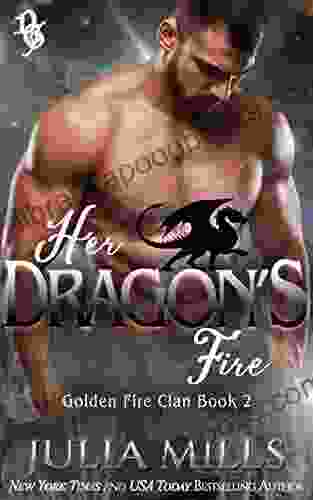
 William Wordsworth
William WordsworthHer Dragon Fire: Unleash the Power Within Your Soul
Embark on an...
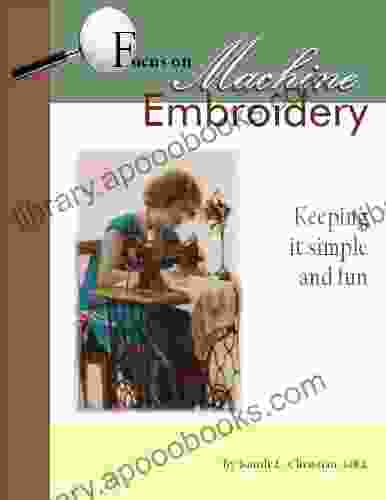
 William Powell
William PowellUnveiling the Enchanting World of Machine Embroidery with...
Embroidery, an ancient art form that has...
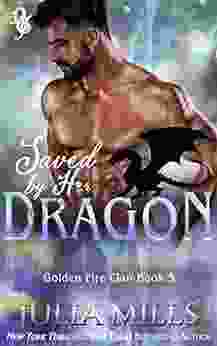
 Will Ward
Will WardGolden Fire Clan Dragon Guard: A Journey into a Realm of...
Prepare to be...

 Gustavo Cox
Gustavo CoxProject Ideas to Elevate Your Hobbies and Flourish Your...
<p>Welcome to the ultimate guide to...
4.5 out of 5
| Language | : | English |
| File size | : | 2318 KB |
| Text-to-Speech | : | Enabled |
| Screen Reader | : | Supported |
| Enhanced typesetting | : | Enabled |
| Word Wise | : | Enabled |
| Print length | : | 258 pages |


